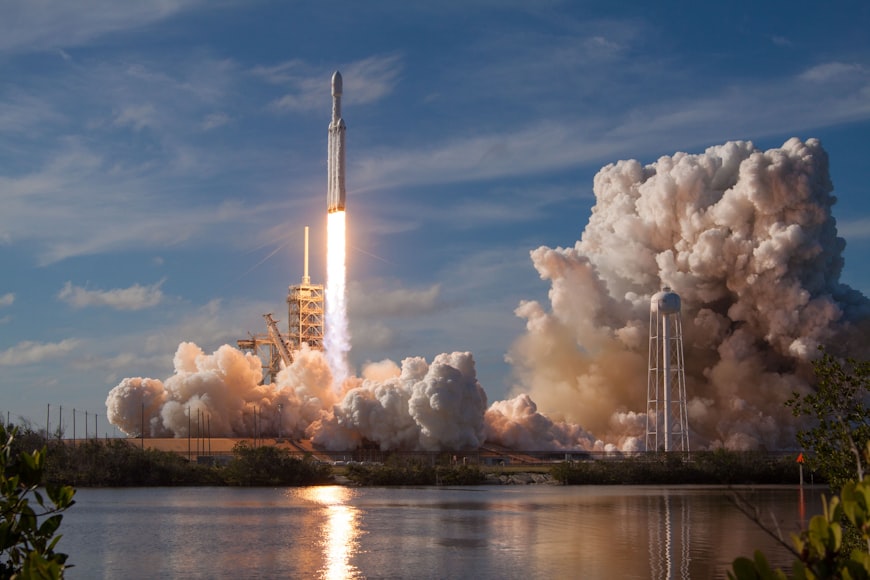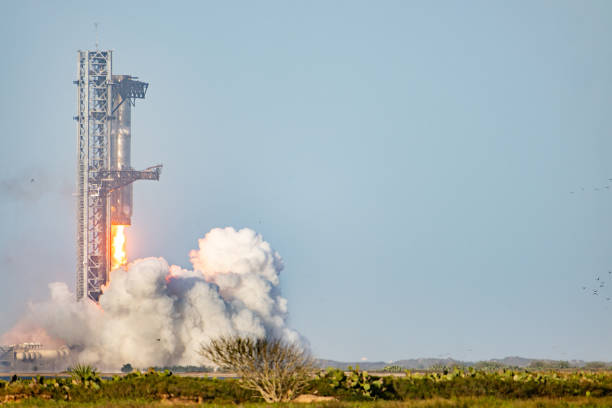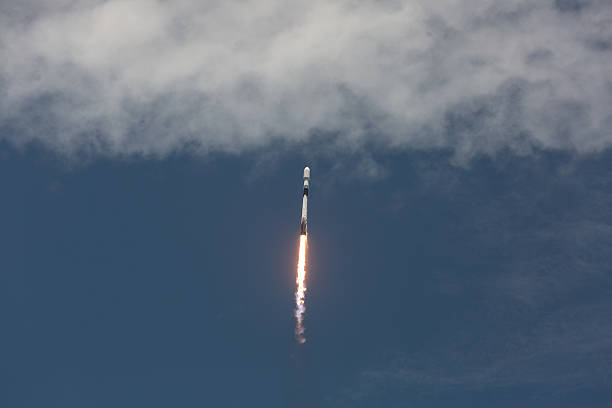Blue Origin Set to Launch New Shepard Rocket with Upgraded Capsule and Booster
Blue Origin prepares to launch New Shepard rocket NS-27 on Monday, debuting a new booster and crew-capable capsule, RSS Kármán Line, carrying 12 payloads on a suborbital mission.
 Gray spacecraft taking off during daytime SpaceX Falcon Heavy Launch Photo By: SpaceX (Unsplash)
Gray spacecraft taking off during daytime SpaceX Falcon Heavy Launch Photo By: SpaceX (Unsplash)Blue Origin is gearing up to launch its New Shepard rocket, NS-27, on Monday at 9 a.m. EDT from its west Texas launch site, marking the debut of a new booster and crew-capable capsule. The mission will feature the RSS Kármán Line capsule, named after the internationally recognized altitude for reaching space, and Booster 5, which boasts enhanced payload capacity and technology upgrades.

This launch comes nearly two years after an explosion damaged one of Blue Origin's two operational boosters in 2022. The company has since relied on a single working booster, but the introduction of Booster 5 will increase its capacity for suborbital missions.
The NS-27 mission will carry 12 payloads, including five within the booster, such as a new navigation system for New Shepard and Blue Origin's New Glenn rocket, scheduled to launch from Cape Canaveral in November. Other payloads include laser-based sensors for lunar landings, proximity sensors, and a commercial payload.
Tens of thousands of student-designed postcards for Blue Origin's STEM nonprofit Club for the Future will also be on board. Notably, this mission will not carry human passengers, but instead pave the way for future crewed flights.
The RSS Kármán Line capsule features technology upgrades for improved performance and reusability, as well as an updated design. This is the third crew-capable capsule constructed by Blue Origin, with the first, RSS First Step, having flown humans to space eight times, including company founder Jeff Bezos.
Blue Origin aims to ramp up passenger flights, having already sent 44 people to space, including Central Florida residents Marc and Sharon Hagle, and Brevard County millionaire Steve Young. The company plans to increase its flight frequency, targeting up to six passenger flights per year.
The Federal Aviation Administration temporarily grounded New Shepard after the 2022 incident, but flights resumed 16 months later with an uncrewed mission in December 2023, followed by two human spaceflights in 2024.
















Conversation